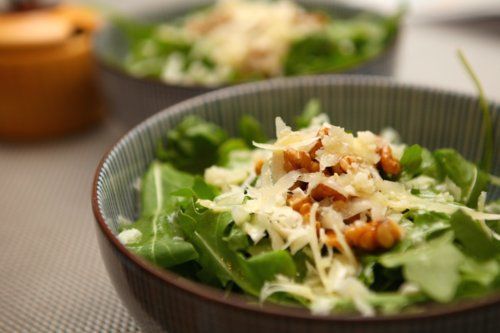The other day I was working with a private coaching client and listening to her share about her struggles with junk food cravings.
I was listening to this smart woman share about her struggles and I heard things like, “Oh, I just totally gave in“, “I knew I shouldn’t be eating it,” and “This was so bad but I ate it anyway….and then I just couldn’t stop.”
And though those were her literal words, what I heard was something much deeper. It’s something that so many of us do all the time. We use food as a weapon.
We use food as a numbing agent. We use food as a coveted illicit pleasure in a game where we test how long we can resist it to prove our strength. We use food as everything but how it is meant to be used… an enjoyable, health-giving tool.
If you know my work, you know that I’m a huge anti-diet advocate. But many of us who don’t believe we are “dieters” still fall into the same traps by deeming some foods “bad.” If you peek underneath—these foods are bad because we have made the rule that if we eat them we are bad.
Brene Brown, the brilliant vulnerability and shame researcher who explores how to live wholeheartedly, talks about a crucial difference between shame and guilt. As she says, guilt is “what I did was bad” and shame is “I am bad.” The difference is subtle, but the impact is hugely different.
Guilt gives us an opportunity to learn from our mistakes, grow, and do better next time.
Guilt self-talk around food might be: “Wow, eating that slice of cake after such a big meal made me feel sick and bloated. That is just not worth it, I’m going to remember next time to take a few deep breaths and really check in with my body before I order dessert.”
Shame destroys our self value and self worth.
Shame self-talk around food goes something like: “I can’t believe I ate that slice of cake. I can never control myself. I deserve to be this overweight, out of shape mother. It makes me sick that I gave in to dessert again.”
And then, all too often, it’s followed by a late-night binge to try and numb the pain of how bad you feel about yourself.

Food is a neutral tool.
Instead of seeing food as a neutral tool to help us live vibrant lives, we give it deeper meanings. And in a diet-crazed society, that deeper meaning is that there are some foods that make you a bad person when you eat them.
Here’s the thing—until we see food as a tool and disengage it from the emotional dark place of shame, we will be kept in a psychological struggle with it our whole lives. Become aware—deeply aware—and curious about how foods make you literally and emotionally feel.
Not whether the food is bad or good. Not whether it is right or wrong to eat it. Instead, every time you eat something ask yourself does this make me feel…
- Light? Energized? Clean?
- Strong? Focused? Scattered?
- Anxious? Calm? Comforted?
- Warm? Sensual? Delighted?
- Weighted down? Bloated? Thirsty?
Get curious, not judgmental.
Once you’re used to making connections between the food you eat and how you feel, ask yourself that question before you eat it. “How is this food going to make me feel?”
When we release the restriction and the judgement that food is good or bad, we can also release the deeper judgement that we are good or bad for choosing those foods.

From this place, we can relearn how to use food as the phenomenal tool that it is.
One of my favorite ways to reacquaint myself with life-giving, healthy, vital foods is through periodic, whole-foods cleansing. I know that like anything, cleansing and detox can be used as a weapon—I’ve heard many stories of women starving themselves in the name of detoxifying, and resurfacing hungry, weak, and irritable.
A personalized, whole-foods, vital-living cleanse.
That is not the kind of whole-foods cleanse I’m talking about. What I love to do is lead others through a whole-foods, whole-life cleanse that takes into account your whole person. The key elements of a healthy foods based cleanse is that you give your body an opportunity to be drenched in foods that are targeted to scrub out, flush through, and nourish your cells and your detoxification organs.
In fact, in preparation for my spring cleansing course, I’m putting together a free video workshop called How to Create Your Personalized Whole-Life Cleansing Plan. If you’re interested in gaining access as soon as it’s ready, head here.
I have seen women find tremendous freedom around food issues by taking a decidedly feminine approach to disengaging the emotional underbelly. Instead of trying to force your way to eating well, release your judgement, turn a loving gaze of grace and kindness toward yourself, and get curious about how food makes your body feel.
Then practice using food as a vitality-giving tool. Make food choices based on what you want to bring into your body versus what you want to keep out.
Do you find you fall into shame talk with food? How you ever tried simply being curious about how foods make you feel?


